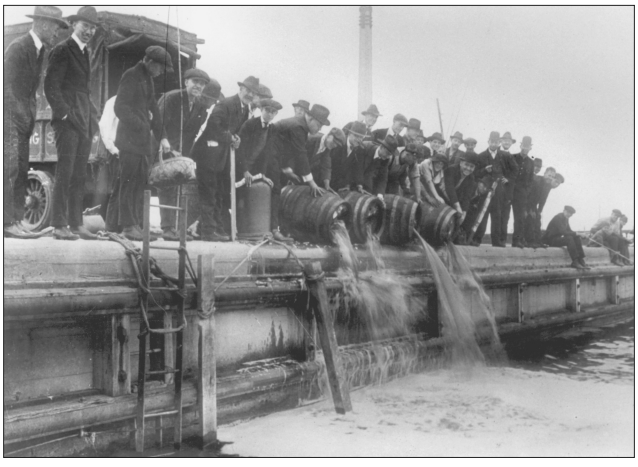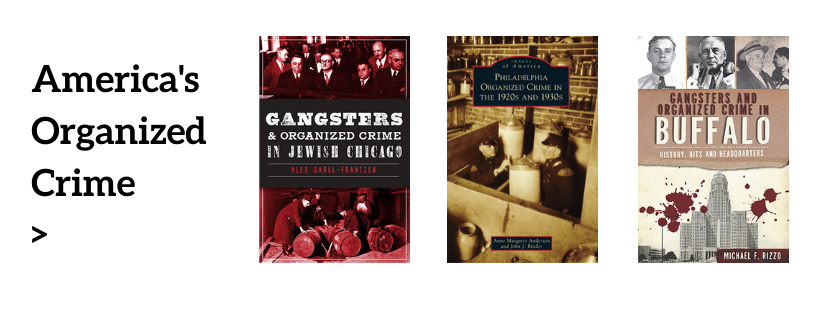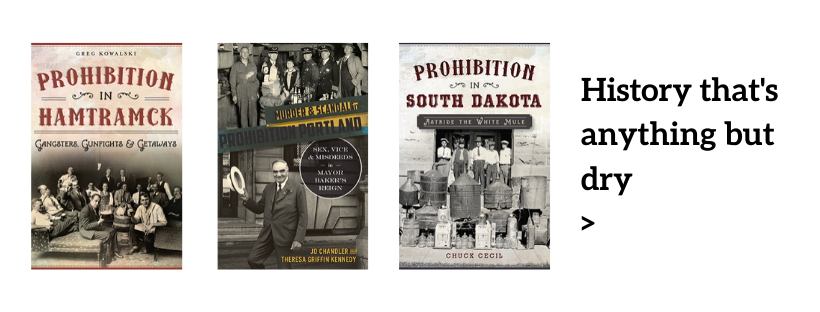
Gangsters, bootleggers, crooked cops, and brazen politicians are iconic characters in the Prohibition Era of American history, and no more so than in Philadelphia. But what set the Philadelphia mob family apart from more famous groups in New York, Chicago, and New Orleans was a desire to keep a low profile. And within the lawless realms, Philadelphia became known as an “open town”—one that allowed and even encouraged its citizens to ignore the Prohibition laws of the 1920s. That free-wheeling spirit spawned many colorful players in the City of Brotherly Love.
Lawlessness was the price Philadelphia had to pay for what it wanted to drink.
– Collier’s Magazine, 1928.

The Fighting Quaker
From 1924 to 1925, Marine General Smedley Butler was Philadelphia’s director of public safety. As top cop, he oversaw both the police and fire departments, and made shrewd moves which produced results. Just in his first year on the job, The Fighting Quaker closed 2,566 speakeasies, and his police force made 39,000 arrests. Butler quickly established an elite force of 250 policemen, nicknamed “Unit No. 1” to handle all vice raids. And Butler even went after the Bellevue-Stratford Hotel and the Ritz-Carlton Hotel, which openly housed gangsters and served thirsty Philadelphians. His culture of strict enforcement also made him an enemy of Philly’s political machinery, which worked hand-in-glove with crooked cops and bootleggers.

I have been fighting in a battle where the head of the show was disloyal and everything was crooked…Sherman was right about war, but he was never head of police in Philadelphia.
– Smedley Butler

King of the Bootleggers
Philadelphia district attorney John Monaghan labeled Max “Boo Boo” Hoff as the “King of the Bootleggers.” As a boxing promoter, club owner, and owner of alcohol distilleries, Hoff was a central figure on the bootlegging scene. He knew how to play the game, and famously had a passel of cops on his Christmas list. His speakeasies the 21 Club and the Picadilly Club were never shuttered for very long — public opinion always thwarted the District Attorney, and Hoff was never indicted on Prohibition charges.

The Angel
Frederick “the Angel” Tenuto was a slippery hit man. After escaping from Philadelphia’s Holmesburg Prison in 1947, Sutton was nabbed in Brooklyn…after fire years on the lam! His snitch to the cops, Arnold Schuster? Well, you know what happens to rats… Tenuto spent 14 years on the FBI’s Ten Most Wanted list, but was never seen again.

The Poison-for-Profit Syndicate
Arson, counterfeiting, and bootlegging just wasn’t enough for Herman Petrillo, The bored gangster hatched a plan to cash in on the unhappiness of disgruntled wives. Petrillo convinced plenty of unhappy women to 86 their husbands, sometimes with arsenic, and then see them collect from the nearly departeds’ life insurance policies. Not all of the wives were in on the offings; but Christine Cerrone, a 68-year-old housewife, conspired to drown her boarding house resident, and, after they found that she had been a beneficiary for a portion of her victim’s life insurance, pled guilty to second-degree murder. Herman Petrillo wasn’t so lucky — he got the electric chair.


